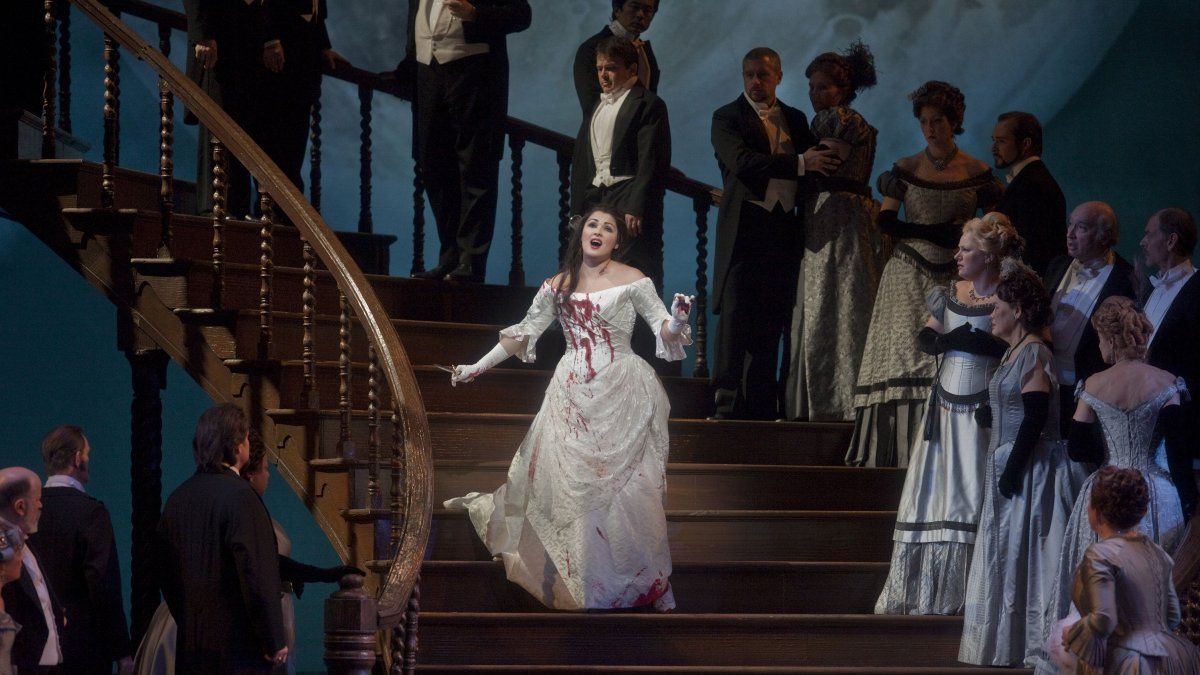“We are the Met! ”protesters chanted at the protest, after months of tensions threatening the autumn season.
The Met employs more than 3,000 people and is the largest performing arts organization in the United States. The pandemic closed its stages in March 2020.
The International Alliance of Theater Stage Employees (IATSE) says the Met and its CEO Peter Gelb have negotiated in bad faith, and requested a 30% pay cut that would remain in effect even after performances resume.
The Met’s administration denies that the proposed cuts are that wide or long-lasting for the average employee, but insists that cutting wages is necessary to secure the future of the home.
The workers – who operate one of the most technologically advanced scenarios in the world – accuse the administration of using the pandemic as an excuse to pass an unfair contract, and of undermining unions by outsourcing certain jobs during lockdown.
“It is an exploitation of the health crisis that has decimated our industries and caused tremendous pain to our country,” said Matthew Loeb, the international president of IATSE.
The protest takes place within days of the opera performing in front of a live audience for the first time in 430 days, with two shows scheduled for Sunday.
This week the Met reached a tentative agreement with the union that represents choristers and soloists.
The union of orchestra members, music staff and librarians has accepted temporary payments, but is still negotiating long-term contracts.
All supported the stagehands on Thursday, who denounced the Met sending jobs to Wales linked to two operas, as well as a non-union store in Los Angeles.
“It’s a slap in the face,” said Peter Tudor, 63, an electrician who has worked at the Met for 25 years.
The Met told AFP that it has lost 150 million dollars in the last 14 months and faces “the worst economic crisis in 137 years of history”, for which “it must cut costs to survive.”
The opera is scheduled to reopen to the public on September 27.
–


